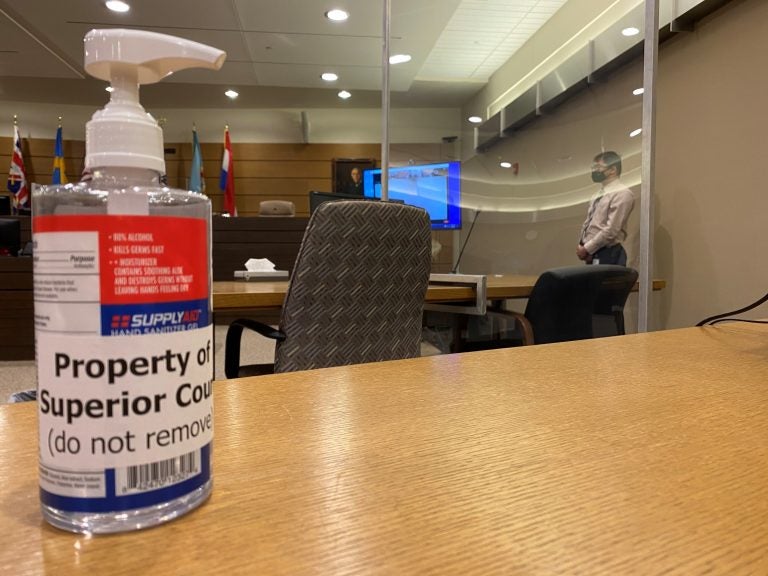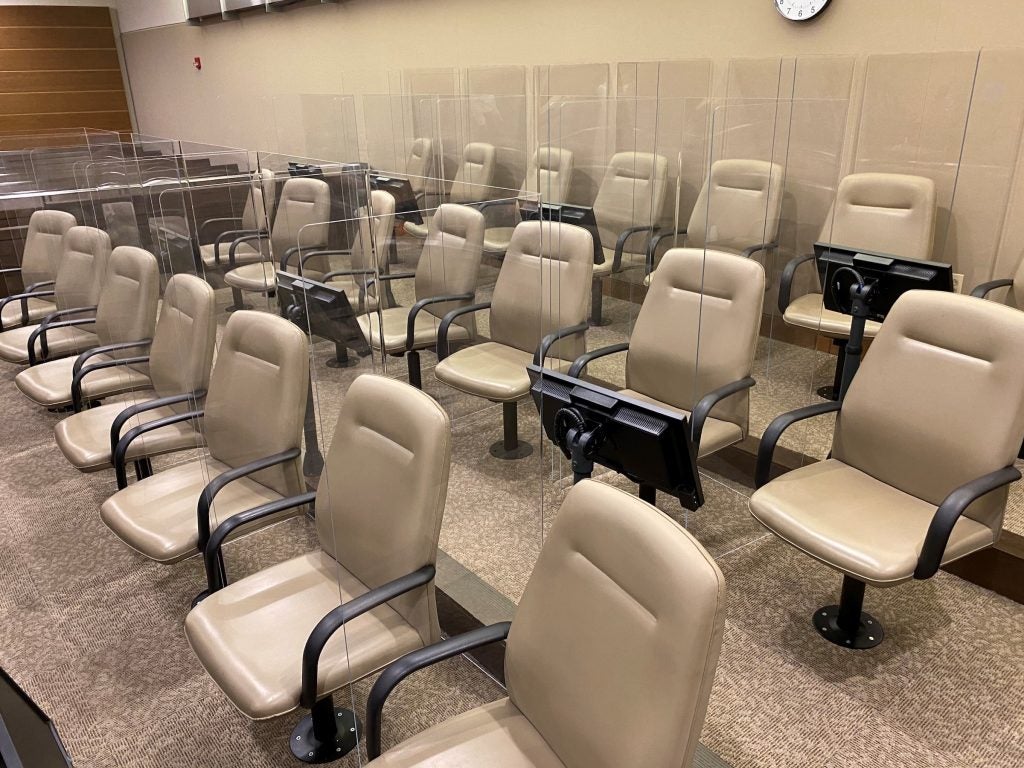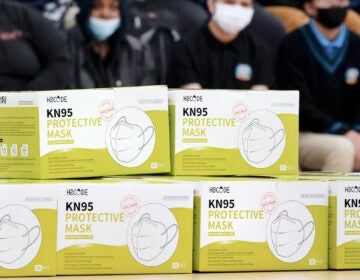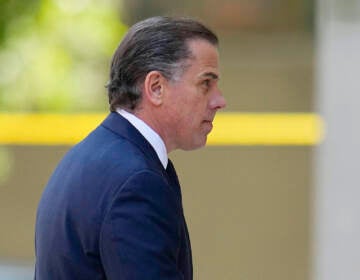Backlog of 1,500 jury trials for Delaware courts as 14-month pandemic break ends
Delaware's courts will start the long slog through a backlog of hundreds of criminal cases starting next week. The pandemic has halted jury trials since March 2020.

Plastic sheeting surrounds every juror's chair and separates tables for attorneys at the Leonard L. Williams Justice Center in downtown Wilmington as Delaware's courts prepare to resume criminal jury trials that had been on hold since March 2020. (Mark Eichmann/WHYY)
Plastic sheeting now surrounds each seat in jurors’ boxes throughout the Leonard L. Williams Justice Center in downtown Wilmington. The attorneys’ tables are divided by plexiglass and there’s a similar barrier in front of where the judges will sit.
It’s all part of safety precautions put in place as Delaware’s courts prepare for the return of jury trials on June 1.
Over the past year, thousands of proceedings have moved forward via video-conferencing technology for things like initial appearances and preliminary hearings. But criminal jury trials were halted, and now there’s a huge backlog. A total of 1,562 cases statewide are awaiting trial, more than 900 in New Castle County alone.
“Now that we’re starting to come out of this pandemic, it’s our focus to try and get those folks their day in court, and to get those moved through the system as quickly as possible,” said Sean O’Sullivan, community relations chief for state courts.
“It’s a huge number, we don’t have any illusions about that. But we do expect that a vast majority of them, once they get their trial date, will probably resolve in a plea deal if history is any guide.”
A pair of recently retired judges, William L. Witham Jr. and Richard Stokes, are being brought back to the bench to help expedite cases.
“We are working in conjunction with defense attorneys and the Attorney General’s office to prioritize those cases that I think need it,” O’Sullivan said. “I think jail time is obviously a factor. We want to get those moved as quickly as possible and give everyone their day in court.”
Defendants have had the option to have a bench trial with just the judge deciding their case since the start of the pandemic, but most have chosen to wait for their Constitutionally-guaranteed right to trial by jury.
It will likely take a whole year to catch up on the backlog. “Many of those cases will resolve, typically, somewhere in the range of 90% resolve with a plea deal short of trial,” O’Sullivan said.
Jurors will see new procedures as they report for duty. A court worker will scan their paperwork to record attendance rather than a physical exchange of paper documents.
“What we’re going to do is sort of a non-contact check-in with the jurors’ barcodes and a barcode scanner on this wireless card,” said Ken Creedon, who works in jury services at the courthouse.
Prospective jurors coming into the gathering room on the first floor of the courthouse will be more spread out than before the pandemic. That will limit the number of possible jurors the state can call at one time and the number of trials that can be scheduled at once.
“We are going to be moving slower. We’re not able to summon as many jurors as we have,” O’Sullivan said. “We used to bring in panels of over 200. [Now] it’s going to be more like 140.”

Attorneys in courtrooms on the upper floors of the courthouse will be able to interview prospective jurors via video conference as they sit in their first floor waiting area as part of the voir dire process of jury selection.
Once in the courtroom, jurors will find their individual seats in the jury box surrounded by plexiglass on three sides. The jury and anyone else entering the courthouse will still be required to wear face masks.

Get daily updates from WHYY News!
WHYY is your source for fact-based, in-depth journalism and information. As a nonprofit organization, we rely on financial support from readers like you. Please give today.





![CoronavirusPandemic_1024x512[1]](https://whyy.org/wp-content/uploads/2020/03/CoronavirusPandemic_1024x5121-300x150.jpg)


